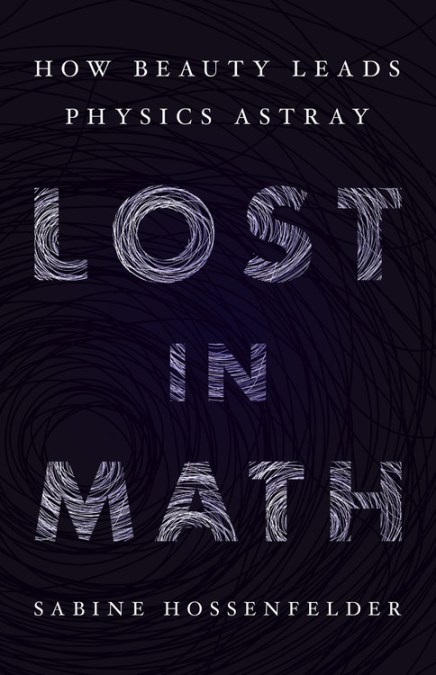 From Sabine Hossenfelder, author of the forthcoming Lost in Math: How Beauty Leads Physics Astray (June, 2018), at NPR:
From Sabine Hossenfelder, author of the forthcoming Lost in Math: How Beauty Leads Physics Astray (June, 2018), at NPR:
For centuries, progress in the foundations of physics has been characterized by simplification. Complex processes — such as the multitude of chemical reactions — turned out to arise from stunningly simple underlying equations. And simplicity carried us a long way. According to physicists’ best theories today, everything in our universe emerges from merely 25 elementary particles and four types of forces.
So, yes, simplicity — often in the form of unification — has been extremely successful. For this reason, many physicists want to further simplify the existing theories. But you can always simplify a theory by removing an assumption. Like the assumption that the gravitational constant has a some value that you inferred from observation (up to some precision). Or similar assumptions about, say, the values of the masses of elementary particles, or the cosmological constant, or the strength of the four forces. These are assumptions some theoreticians are now throwing out.
If Ockham could see what physicists are doing here, he’d pray for God to bring reason back to Earth. You should remove unnecessary assumptions, alright. But certainly you shouldn’t remove assumptions that you need to describe observations. If you do, you’ll just get a useless theory, equations from which you can’t calculate anything. More.
Good points But what if multiverse theory is simply a means of fending off the impasses that fully naturalist theoretical physics is in? It doesn’t need to make sense, any more than bollards do.
See also: Theoretical physicist has a hard time convincing peers to accept reality
Sabine Hossenfelder asks at her blog “How do you prove that Earth is older than 10,000 years?”
Rob Sheldon: “Naturalness” in physics is dead, says Sabine Hossenfelder, and that’s a good thing
and
The multiverse is science’s assisted suicide